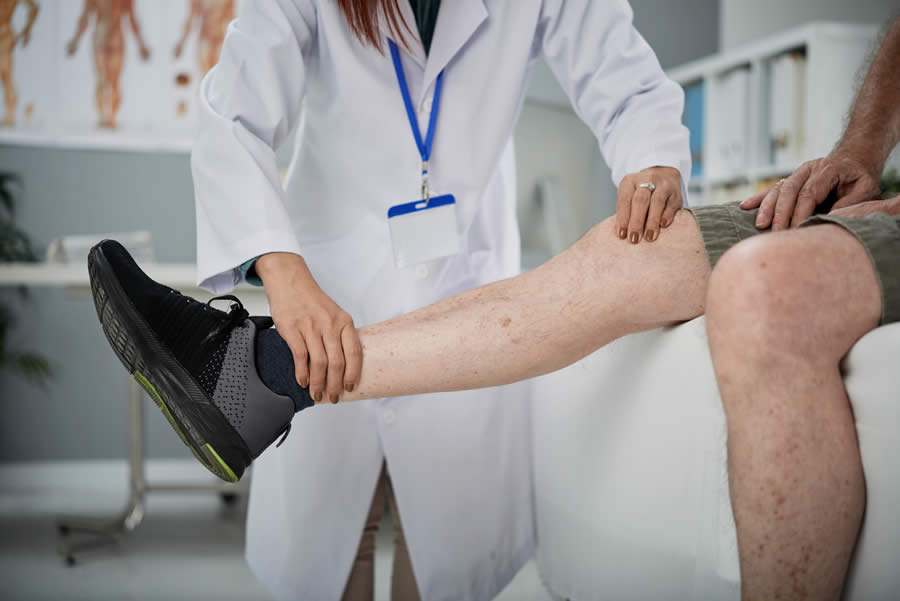Menu
- Home
- Treatments
- Our Providers
- About Us
- Patient Info
- Testimonials
- Locations
- Blog
- Financing
- Contact Us
- Home
- Treatments
- Our Providers
- About Us
- Patient Info
- Testimonials
- Locations
- Blog
- Financing
- Contact Us

At the end of the day, do you find yourself struggling with aching legs? This discomfort might be more than just fatigue from your daily chores; it could be a sign of venous insufficiency. At National Vascular Associates, we offer quality vascular care for local patients. Keep reading to explore what venous insufficiency is, how it manifests, and the various vascular treatment options available.

Venous insufficiency affects the veins, primarily in the legs, where blood flow back to the heart is inadequate due to malfunctioning vein valves. Under normal circumstances, these valves ensure blood flows toward the heart. When they fail, blood can accumulate in the legs, leading to various symptoms. Unlike simple cosmetic concerns, venous insufficiency can significantly impair mobility and wellness if left untreated.
Identifying venous insufficiency often starts with recognizing its symptoms. Individuals might notice swelling in the legs and ankles, visibly enlarged veins commonly known as varicose veins, a feeling of heaviness or fatigue in the legs, skin discoloration, and, in more severe cases, the development of ulcers on the legs. These symptoms typically intensify after long periods of standing or at the end of the day. Diagnostic tests, like a Doppler ultrasound, are important for confirming the diagnosis, as they allow physicians to view blood flow and vein structure in real time.
The good news is that venous insufficiency can be managed effectively with both non-invasive methods and surgical interventions from a qualified vascular specialist. Conservative approaches include wearing compression stockings to aid blood flow, engaging in exercise to strengthen the legs, and elevating the legs when sitting to reduce swelling. For more severe cases, medical treatments such as sclerotherapy, laser treatments, or surgical options like vein stripping may be necessary. Each vascular treatment is customized based on the patient's specific condition and lifestyle needs.
Preventing venous insufficiency involves a proactive approach to health. Routine physical activity, maintaining a healthy weight, and avoiding prolonged periods of inactivity can all contribute to better vein health. For those at higher risk, including individuals with family histories of vein issues, periodic evaluations by a vascular specialist are recommended. For patients already experiencing symptoms, managing the condition is a long-term commitment that might include routine use of compression garments and lifestyle adjustments to mitigate the risk of complications.
Living with venous insufficiency requires understanding and adapting to the condition. Education on how to manage symptoms and prevent worsening of the condition is key. Patients should be aware of how to modify their daily activities to ease symptoms, recognize signs of complications, and know when to seek further medical advice for vascular care. Support groups and patient education programs can be invaluable resources for those looking to share experiences and strategies.
If you’ve been searching for a vascular doctor in your area, reach out to our team today. National Vascular Associates is dedicated to providing the highest level of care, from initial diagnosis through customized treatment plans and ongoing management. If you believe you are experiencing signs of venous insufficiency, do not hesitate to contact us and schedule a consultation with a local vascular doctor. Together, we can take steps to ensure your veins are as healthy as possible, allowing you to enjoy a more active and comfortable life.